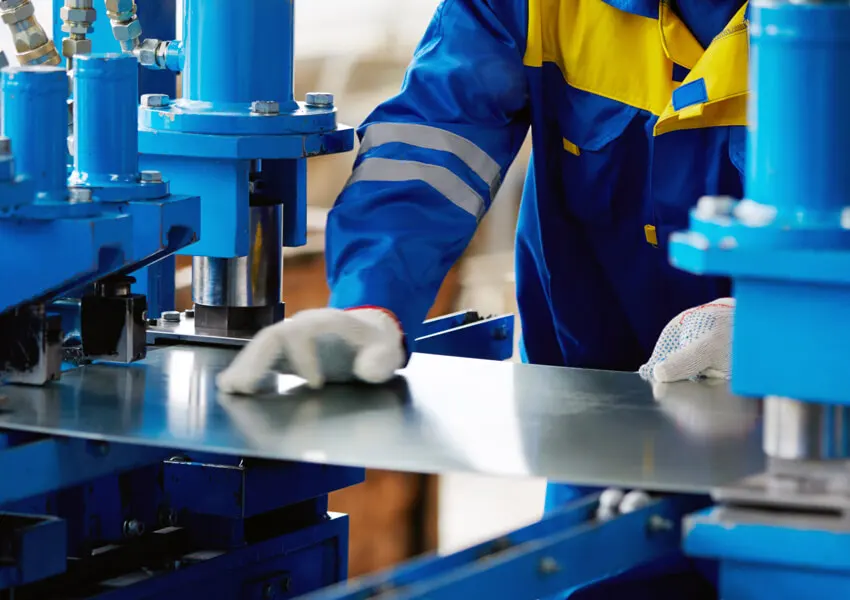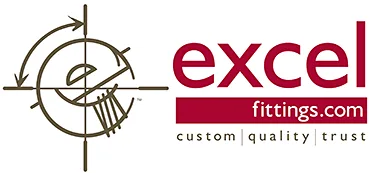Custom Pipe Fitting & Valve Fabrication
Simplify your assembly process with custom fittings and valves machined, threaded, and documented to your exact OEM specifications.

Custom Fabrication Features
- Tailored Precision: Our custom fabrication service offers precision that matches your unique requirements, ensuring a perfect fit for your project.
- Material Flexibility: Choose from a wide range of materials, including metals, plastics, and composites, to suit your specific application.
- Advanced Equipment: We utilize state-of-the-art machinery and technology to deliver exceptional results in every project.
- Design Collaboration: Work closely with our skilled engineers to turn your vision into reality, ensuring the end product meets your exact specifications.


Custom Fabrication Benefits
- Optimized Solutions: Custom fabrication ensures your project’s needs are met precisely, resulting in an optimized solution for your application.
- Enhanced Efficiency: Tailored components and structures improve operational efficiency, reducing downtime and maintenance costs.
- Quality Assurance: Rigorous quality control measures guarantee the highest standards of craftsmanship, durability, and reliability.
- Cost-Effective: Our custom fabrication service helps you avoid unnecessary expenses associated with ill-fitting, off-the-shelf components.
- Elevate Your Projects: with our custom fabrication expertise, where precision and customization lead to superior results.
Custom Fabrication 12 Steps:
Custom fabrication involves the process of creating unique, tailored products or components according to specific design requirements. The ideal steps of custom fabrication may vary based on the nature of the project and the materials involved, but here’s a general guideline:
- Conceptualization and Design:
- Define the project requirements, specifications, and constraints.
- Develop a conceptual design based on client needs and industry standards.
- Utilize computer-aided design (CAD) software to create detailed drawings and 3D models.
- Material Selection:
- Identify the most suitable materials based on the project’s mechanical, thermal, and chemical requirements.
- Consider factors such as cost, availability, and sustainability.
- Prototyping (Optional):
- Create a prototype or a small-scale model to test the design’s feasibility.
- Evaluate the prototype’s performance and make necessary adjustments.
- Material Preparation:
- Procure the selected materials in the required dimensions.
- Cut, shape, or prepare the materials according to the design specifications.
- Fabrication Processes:
- Employ various fabrication techniques such as welding, machining, bending, and forming to shape the materials.
- Use specialized equipment and tools based on the chosen fabrication methods.
- Assembly:
- Assemble fabricated components according to the detailed design.
- Ensure precision and accuracy in alignment and connections.
- Quality Control:
- Implement quality control measures at various stages to ensure the final product meets specified standards.
- Conduct inspections, measurements, and tests to verify the product’s integrity.
- Finishing and Surface Treatment:
- Apply surface finishes or treatments, such as painting, coating, or polishing, to enhance aesthetics and protect against corrosion.
- Testing and Validation:
- Conduct functional tests to validate the performance and reliability of the custom-fabricated product.
- Ensure that the product meets or exceeds industry standards and client expectations.
- Documentation:
- Create comprehensive documentation, including "as-built" drawings, material certificates, and test reports.
- Provide clients with detailed records for future reference and maintenance.
- Delivery and Installation:
- Package the custom-fabricated product securely for transport.
- Install the product at the designated site, ensuring proper alignment and functionality.
- Post-Installation Support:
- Offer ongoing support, maintenance guidelines, and troubleshooting assistance.
- Address any issues that may arise after installation.
Throughout the custom fabrication process, effective communication with clients, adherence to safety standards, and a commitment to quality are crucial for the successful completion of the project. Custom fabrication requires a combination of technical expertise, creativity, and attention to detail to bring unique designs to life.
Need a Fitting or Valve for a Specific Industry or Application?
Excel's experience, craftsmanship, and quality have made it the pipe fitting supplier of choice for many of the world's leading industrial brands and manufacturers. Rely on 40 Years of Engineering Expertise.
